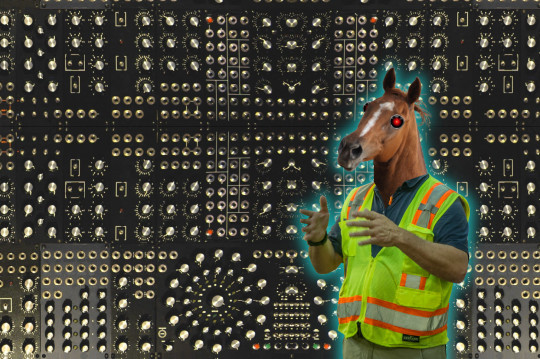#freight fraud
Explore tagged Tumblr posts
Text
Protecting Your Business From Fraud in Today’s Economy
The transportation industry has always been a vital part of the economy, but lately, there’s been a concerning rise in fraud schemes targeting trucking companies, brokers, and shippers. The last quarter has seen a significant increase in scams, costing businesses millions and creating uncertainty for everyone involved. But for individual owner-operators—those who own just one or two trucks and…

View On WordPress
#avoid freight fraud#avoid trucking fraud#double brokering scams#fraud in trucking#freight fraud#freight scam prevention#independent truckers#load scams#owner-operator business#owner-operator fraud#owner-operator risks#protect trucking business#transportation fraud#transportation industry scams#trucker fraud prevention#trucker scams#trucking business protection#trucking business safety#trucking fraud rise#trucking fraud warning signs#trucking industry fraud#trucking risk management#trucking scams 2024#trucking security tips#trucking verification tools
0 notes
Text
Gig apps trap reverse centaurs in Skinner boxes

Enshittification is the process by which digital platforms devour themselves: first they dangle goodies in front of end users. Once users are locked in, the goodies are taken away and dangled before business customers who supply goods to the users. Once those business customers are stuck on the platform, the goodies are clawed away and showered on the platform’s shareholders:
https://pluralistic.net/2023/01/21/potemkin-ai/#hey-guys
If you’d like an essay-formatted version of this post to read or share, here’s a link to it on pluralistic.net, my surveillance-free, ad-free, tracker-free blog:
https://pluralistic.net/2023/04/12/algorithmic-wage-discrimination/#fishers-of-men
Enshittification isn’t just another way of saying “fraud” or “price gouging” or “wage theft.” Enshittification is intrinsically digital, because moving all those goodies around requires the flexibility that only comes with a digital businesses. Jeff Bezos, grocer, can’t rapidly change the price of eggs at Whole Foods without an army of kids with pricing guns on roller-skates. Jeff Bezos, grocer, can change the price of eggs on Amazon Fresh just by twiddling a knob on the service’s back-end.
Twiddling is the key to enshittification: rapidly adjusting prices, conditions and offers. As with any shell game, the quickness of the hand deceives the eye. Tech monopolists aren’t smarter than the Gilded Age sociopaths who monopolized rail or coal — they use the same tricks as those monsters of history, but they do them faster and with computers:
https://doctorow.medium.com/twiddler-1b5c9690cce6
If Rockefeller wanted to crush a freight company, he couldn’t just click a mouse and lay down a pipeline that ran on the same route, and then click another mouse to make it go away when he was done. When Bezos wants to bankrupt Diapers.com — a company that refused to sell itself to Amazon — he just moved a slider so that diapers on Amazon were being sold below cost. Amazon lost $100m over three months, diapers.com went bankrupt, and every investor learned that competing with Amazon was a losing bet:
https://slate.com/technology/2013/10/amazon-book-how-jeff-bezos-went-thermonuclear-on-diapers-com.html
That’s the power of twiddling — but twiddling cuts both ways. The same flexibility that digital businesses enjoy is hypothetically available to workers and users. The airlines pioneered twiddling ticket prices, and that naturally gave rise to countertwiddling, in the form of comparison shopping sites that scraped the airlines’ sites to predict when tickets would be cheapest:
https://pluralistic.net/2023/02/27/knob-jockeys/#bros-be-twiddlin
The airlines — like all abusive businesses — refused to tolerate this. They were allowed to touch their knobs as much as they wanted — indeed, they couldn’t stop touching those knobs — but when we tried to twiddle back, that was “felony contempt of business model,” and the airlines sued:
https://www.cnbc.com/2014/12/30/airline-sues-man-for-founding-a-cheap-flights-website.html
And sued:
https://www.nytimes.com/2018/01/06/business/southwest-airlines-lawsuit-prices.html
Platforms don’t just hate it when end-users twiddle back — if anything they are even more aggressive when their business-users dare to twiddle. Take Para, an app that Doordash drivers used to get a peek at the wages offered for jobs before they accepted them — something that Doordash hid from its workers. Doordash ruthlessly attacked Para, saying that by letting drivers know how much they’d earn before they did the work, Para was violating the law:
https://www.eff.org/deeplinks/2021/08/tech-rights-are-workers-rights-doordash-edition
Which law? Well, take your pick. The modern meaning of “IP” is “any law that lets me use the law to control my competitors, competition or customers.” Platforms use a mix of anticircumvention law, patent, copyright, contract, cybersecurity and other legal systems to weave together a thicket of rules that allow them to shut down rivals for their Felony Contempt of Business Model:
https://locusmag.com/2020/09/cory-doctorow-ip/
Enshittification relies on unlimited twiddling (by platforms), and a general prohibition on countertwiddling (by platform users). Enshittification is a form of fishing, in which bait is dangled before different groups of users and then nimbly withdrawn when they lunge for it. Twiddling puts the suppleness into the enshittifier’s fishing-rod, and a ban on countertwiddling weighs down platform users so they’re always a bit too slow to catch the bait.
Nowhere do we see twiddling’s impact more than in the “gig economy,” where workers are misclassified as independent contractors and put to work for an app that scripts their every move to the finest degree. When an app is your boss, you work for an employer who docks your pay for violating rules that you aren’t allowed to know — and where your attempts to learn those rules are constantly frustrated by the endless back-end twiddling that changes the rules faster than you can learn them.
As with every question of technology, the issue isn’t twiddling per se — it’s who does the twiddling and who gets twiddled. A worker armed with digital tools can play gig work employers off each other and force them to bid up the price of their labor; they can form co-ops with other workers that auto-refuse jobs that don’t pay enough, and use digital tools to organize to shift power from bosses to workers:
https://pluralistic.net/2022/12/02/not-what-it-does/#who-it-does-it-to
Take “reverse centaurs.” In AI research, a “centaur” is a human assisted by a machine that does more than either could do on their own. For example, a chess master and a chess program can play a better game together than either could play separately. A reverse centaur is a machine assisted by a human, where the machine is in charge and the human is a meat-puppet.
Think of Amazon warehouse workers wearing haptic location-aware wristbands that buzz at them continuously dictating where their hands must be; or Amazon drivers whose eye-movements are continuously tracked in order to penalize drivers who look in the “wrong” direction:
https://pluralistic.net/2021/02/17/reverse-centaur/#reverse-centaur
The difference between a centaur and a reverse centaur is the difference between a machine that makes your life better and a machine that makes your life worse so that your boss gets richer. Reverse centaurism is the 21st Century’s answer to Taylorism, the pseudoscience that saw white-coated “experts” subject workers to humiliating choreography down to the smallest movement of your fingertip:
https://pluralistic.net/2022/08/21/great-taylors-ghost/#solidarity-or-bust
While reverse centaurism was born in warehouses and other company-owned facilities, gig work let it make the leap into workers’ homes and cars. The 21st century has seen a return to the cottage industry — a form of production that once saw workers labor far from their bosses and thus beyond their control — but shriven of the autonomy and dignity that working from home once afforded:
https://doctorow.medium.com/gig-work-is-the-opposite-of-steampunk-463e2730ef0d
The rise and rise of bossware — which allows for remote surveillance of workers in their homes and cars — has turned “work from home” into “live at work.” Reverse centaurs can now be chickenized — a term from labor economics that describes how poultry farmers, who sell their birds to one of three vast poultry processors who have divided up the country like the Pope dividing up the “New World,” are uniquely exploited:
https://onezero.medium.com/revenge-of-the-chickenized-reverse-centaurs-b2e8d5cda826
A chickenized reverse centaur has it rough: they must pay for the machines they use to make money for their bosses, they must obey the orders of the app that controls their work, and they are denied any of the protections that a traditional worker might enjoy, even as they are prohibited from deploying digital self-help measures that let them twiddle back to bargain for a better wage.
All of this sets the stage for a phenomenon called algorithmic wage discrimination, in which two workers doing the same job under the same conditions will see radically different payouts for that work. These payouts are continuously tweaked in the background by an algorithm that tries to predict the minimum sum a worker will accept to remain available without payment, to ensure sufficient workers to pick up jobs as they arise.
This phenomenon — and proposed policy and labor solutions to it — is expertly analyzed in “On Algorithmic Wage Discrimination,” a superb paper by UC Law San Franciscos Veena Dubal:
https://papers.ssrn.com/sol3/papers.cfm?abstract_id=4331080
Dubal uses empirical data and enthnographic accounts from Uber drivers and other gig workers to explain how endless, self-directed twiddling allows gig companies pay workers less and pay themselves more. As @[email protected] explains in his LA Times article on Dubal’s research, the goal of the payment algorithm is to guess how often a given driver needs to receive fair compensation in order to keep them driving when the payments are unfair:
https://www.latimes.com/business/technology/story/2023-04-11/algorithmic-wage-discrimination
The algorithm combines nonconsensual dossiers compiled on individual drivers with population-scale data to seek an equilibrium between keeping drivers waiting, unpaid, for a job; and how much a driver needs to be paid for an individual job, in order to keep that driver from clocking out and doing something else. @ Here’s how that works. Sergio Avedian, a writer for The Rideshare Guy, ran an experiment with two brothers who both drove for Uber; one drove a Tesla and drove intermittently, the other brother rented a hybrid sedan and drove frequently. Sitting side-by-side with the brothers, Avedian showed how the brother with the Tesla was offered more for every trip:
https://www.youtube.com/watch?v=UADTiL3S67I
Uber wants to lure intermittent drivers into becoming frequent drivers. Uber doesn’t pay for an oversupply of drivers, because it only pays drivers when they have a passenger in the car. Having drivers on call — but idle — is a way for Uber to shift the cost of maintaining a capacity cushion to its workers.
What’s more, what Uber charges customers is not based on how much it pays its workers. As Uber’s head of product explained: Uber uses “machine-learning techniques to estimate how much groups of customers are willing to shell out for a ride. Uber calculates riders’ propensity for paying a higher price for a particular route at a certain time of day. For instance, someone traveling from a wealthy neighborhood to another tony spot might be asked to pay more than another person heading to a poorer part of town, even if demand, traffic and distance are the same.”
https://qz.com/990131/uber-is-practicing-price-discrimination-economists-say-that-might-not-be-a-bad-thing/
Uber has historically described its business a pure supply-and-demand matching system, where a rush of demand for rides triggers surge pricing, which lures out drivers, which takes care of the demand. That’s not how it works today, and it’s unclear if it ever worked that way. Today, a driver who consults the rider version of the Uber app before accepting a job — to compare how much the rider is paying to how much they stand to earn — is booted off the app and denied further journeys.
Surging, instead, has become just another way to twiddle drivers. One of Dubal’s subjects, Derrick, describes how Uber uses fake surges to lure drivers to airports: “You go to the airport, once the lot get kind of full, then the surge go away.” Other drivers describe how they use groupchats to call out fake surges: “I’m in the Marina. It’s dead. Fake surge.”
That’s pure twiddling. Twiddling turns gamification into gamblification, where your labor buys you a spin on a roulette wheel in a rigged casino. As a driver called Melissa, who had doubled down on her availability to earn a $100 bonus awarded for clocking a certain number of rides, told Dubal, “When you get close to the bonus, the rides start trickling in more slowly…. And it makes sense. It’s really the type of shit that they can do when it’s okay to have a surplus labor force that is just sitting there that they don’t have to pay for.”
Wherever you find reverse-centaurs, you get this kind of gamblification, where the rules are twiddled continuously to make sure that the house always wins. As a contract driver Amazon reverse centaur told Lauren Gurley for Motherboard, “Amazon uses these cameras allegedly to make sure they have a safer driving workforce, but they’re actually using them not to pay delivery companies”:
https://www.vice.com/en/article/88npjv/amazons-ai-cameras-are-punishing-drivers-for-mistakes-they-didnt-make
Algorithmic wage discrimination is the robot overlord of our nightmares: its job is to relentlessly quest for vulnerabilities and exploit them. Drivers divide themselves into “ants” (drivers who take every job) and “pickers” (drivers who cherry-pick high-paying jobs). The algorithm’s job is ensuring that pickers get the plum assignments, not the ants, in the hopes of converting those pickers to app-dependent ants.
In my work on enshittification, I call this the “giant teddy bear” gambit. At every county fair, you’ll always spot some poor jerk carrying around a giant teddy-bear they “won” on the midway. But they didn’t win it — not by getting three balls in the peach-basket. Rather, the carny running the rigged game either chose not to operate the “scissor” that kicks balls out of the basket. Or, if the game is “honest” (that is, merely impossible to win, rather than gimmicked), the operator will make a too-good-to-refuse offer: “Get one ball in and I’ll give you this keychain. Win two keychains and I’ll let you trade them for this giant teddy bear.”
Carnies aren’t in the business of giving away giant teddy bears — rather, the gambit is an investment. Giving a mark a giant teddy bear to carry around the midway all day acts as a convincer, luring other marks to try to land three balls in the basket and win their own teddy bear.
In the same way, platforms like Uber distribute giant teddy bears to pickers, as a way of keeping the ants scurrying from job to job, and as a way of convincing the pickers to give up whatever work allows them to discriminate among Uber’s offers and hold out for the plum deals, whereupon then can be transmogrified into ants themselves.
Dubal describes the experience of Adil, a Syrian refugee who drives for Uber in the Bay Area. His colleagues are pickers, and showed him screenshots of how much they earned. Determined to get a share of that money, Adil became a model ant, driving two hours to San Francisco, driving three days straight, napping in his car, spending only one day per week with his family. The algorithm noticed that Adil needed the work, so it paid him less.
Adil responded the way the system predicted he would, by driving even more: “My friends they make it, so I keep going, maybe I can figure it out. It’s unsecure, and I don’t know how people they do it. I don’t know how I am doing it, but I have to. I mean, I don’t find another option. In a minute, if I find something else, oh man, I will be out immediately. I am a very patient person, that’s why I can continue.”
Another driver, Diego, told Dubal about how the winners of the giant teddy bears fell into the trap of thinking that they were “good at the app”: “Any time there’s some big shot getting high pay outs, they always shame everyone else and say you don’t know how to use the app. I think there’s secret PR campaigns going on that gives targeted payouts to select workers, and they just think it’s all them.”
That’s the power of twiddling: by hoarding all the flexibility offered by digital tools, the management at platforms can become centaurs, able to string along thousands of workers, while the workers are reverse-centaurs, puppeteered by the apps.
As the example of Adil shows, the algorithm doesn’t need to be very sophisticated in order to figure out which workers it can underpay. The system automates the kind of racial and gender discrimination that is formally illegal, but which is masked by the smokescreen of digitization. An employer who systematically paid women less than men, or Black people less than white people, would be liable to criminal and civil sanctions. But if an algorithm simply notices that people who have fewer job prospects drive more and will thus accept lower wages, that’s just “optimization,” not racism or sexism.
This is the key to understanding the AI hype bubble: when ghouls from multinational banks predict 13 trillion dollar markets for “AI,” what they mean is that digital tools will speed up the twiddling and other wage-suppression techniques to transfer $13T in value from workers and consumers to shareholders.
The American business lobby is relentlessly focused on the goal of reducing wages. That’s the force behind “free trade,” “right to work,” and other codewords for “paying workers less,” including “gig work.” Tech workers long saw themselves as above this fray, immune to labor exploitation because they worked for a noble profession that took care of its own.
But the epidemic of mass tech-worker layoffs, following on the heels of massive stock buybacks, has demonstrated that tech bosses are just like any other boss: willing to pay as little as they can get away with, and no more. Tech bosses are so comfortable with their market dominance and the lock-in of their customers that they are happy to turn out hundreds of thousands of skilled workers, convinced that the twiddling systems they’ve built are the kinds of self-licking ice-cream cones that are so simple even a manager can use them — no morlocks required.
The tech worker layoffs are best understood as an all-out war on tech worker morale, because that morale is the source of tech workers’ confidence and thus their demands for a larger share of the value generated by their labor. The current tech layoff template is very different from previous tech layoffs: today’s layoffs are taking place over a period of months, long after they are announced, and laid off tech worker is likely to be offered a months of paid post-layoff work, rather than severance. This means that tech workplaces are now haunted by the walking dead, workers who have been laid off but need to come into the office for months, even as the threat of layoffs looms over the heads of the workers who remain. As an old friend, recently laid off from Microsoft after decades of service, wrote to me, this is “a new arrow in the quiver of bringing tech workers to heel and ensuring that we’re properly thankful for the jobs we have (had?).”
Dubal is interested in more than analysis, she’s interested in action. She looks at the tactics already deployed by gig workers, who have not taken all this abuse lying down. Workers in the UK and EU organized through Worker Info Exchange and the App Drivers and Couriers Union have used the GDPR (the EU’s privacy law) to demand “algorithmic transparency,” as well as access to their data. In California, drivers hope to use similar provisions in the CCPA (a state privacy law) to do the same.
These efforts have borne fruit. When Cornell economists, led by Louis Hyman, published research (paid for by Uber) claiming that Uber drivers earned an average of $23/hour, it was data from these efforts that revealed the true average Uber driver’s wage was $9.74. Subsequent research in California found that Uber drivers’ wage fell to $6.22/hour after the passage of Prop 22, a worker misclassification law that gig companies spent $225m to pass, only to have the law struck down because of a careless drafting error:
https://www.latimes.com/california/newsletter/2021-08-23/proposition-22-lyft-uber-decision-essential-california
But Dubal is skeptical that data-coops and transparency will achieve transformative change and build real worker power. Knowing how the algorithm works is useful, but it doesn’t mean you can do anything about it, not least because the platform owners can keep touching their knobs, twiddling the payout schedule on their rigged slot-machines.
Data co-ops start from the proposition that “data extraction is an inevitable form of labor for which workers should be remunerated.” It makes on-the-job surveillance acceptable, provided that workers are compensated for the spying. But co-ops aren’t unions, and they don’t have the power to bargain for a fair price for that data, and coops themselves lack the vast resources — “to store, clean, and understand” — data.
Co-ops are also badly situated to understand the true value of the data that is extracted from their members: “Workers cannot know whether the data collected will, at the population level, violate the civil rights of others or amplifies their own social oppression.”
Instead, Dubal wants an outright, nonwaivable prohibition on algorithmic wage discrimination. Just make it illegal. If firms cannot use gambling mechanisms to control worker behavior through variable pay systems, they will have to find ways to maintain flexible workforces while paying their workforce predictable wages under an employment model. If a firm cannot manage wages through digitally-determined variable pay systems, then the firm is less likely to employ algorithmic management.”
In other words, rather than using market mechanisms too constrain platform twiddling, Dubal just wants to make certain kinds of twiddling illegal. This is a growing trend in legal scholarship. For example, the economist Ramsi Woodcock has proposed a ban on surge pricing as a per se violation of Section 1 of the Sherman Act:
https://ilr.law.uiowa.edu/print/volume-105-issue-4/the-efficient-queue-and-the-case-against-dynamic-pricing
Similarly, Dubal proposes that algorithmic wage discrimination violates another antitrust law: the Robinson-Patman Act, which “bans sellers from charging competing buyers different prices for the same commodity. Robinson-Patman enforcement was effectively halted under Reagan, kicking off a host of pathologies, like the rise of Walmart:
https://pluralistic.net/2023/03/27/walmarts-jackals/#cheater-sizes
I really liked Dubal’s legal reasoning and argument, and to it I would add a call to reinvigorate countertwiddling: reforming laws that get in the way of workers who want to reverse-engineer, spoof, and control the apps that currently control them. Adversarial interoperability (AKA competitive compatibility or comcom) is key tool for building worker power in an era of digital Taylorism:
https://www.eff.org/deeplinks/2019/10/adversarial-interoperability
To see how that works, look to other jursidictions where workers have leapfrogged their European and American cousins, such as Indonesia, where gig workers and toolsmiths collaborate to make a whole suite of “tuyul apps,” which let them override the apps that gig companies expect them to use.
https://pluralistic.net/2021/07/08/tuyul-apps/#gojek
For example, ride-hailing companies won’t assign a train-station pickup to a driver unless they’re circling the station — which is incredibly dangerous during the congested moments after a train arrives. A tuyul app lets a driver park nearby and then spoof their phone’s GPS fix to the ridehailing company so that they appear to be right out front of the station.
In an ideal world, those workers would have a union, and be able to dictate the app’s functionality to their bosses. But workers shouldn’t have to wait for an ideal world: they don’t just need jam tomorrow — they need jam today. Tuyul apps, and apps like Para, which allow workers to extract more money under better working conditions, are a prelude to unionization and employer regulation, not a substitute for it.
Employers will not give workers one iota more power than they have to. Just look at the asymmetry between the regulation of union employees versus union busters. Under US law, employees of a union need to account for every single hour they work, every mile they drive, every location they visit, in public filings. Meanwhile, the union-busting industry — far larger and richer than unions — operate under a cloak of total secrecy, Workers aren’t even told which union busters their employers have hired — let alone get an accounting of how those union busters spend money, or how many of them are working undercover, pretending to be workers in order to sabotage the union.
Twiddling will only get an employer so far. Twiddling — like all “AI” — is based on analyzing the past to predict the future. The heuristics an algorithm creates to lure workers into their cars can’t account for rapid changes in the wider world, which is why companies who relied on “AI” scheduling apps (for example, to prevent their employees from logging enough hours to be entitled to benefits) were caught flatfooted by the Great Resignation.
Workers suddenly found themselves with bargaining power thanks to the departure of millions of workers — a mix of early retirees and workers who were killed or permanently disabled by covid — and they used that shortage to demand a larger share of the fruits of their labor. The outraged howls of the capital class at this development were telling: these companies are operated by the kinds of “capitalists” that MLK once identified, who want “socialism for the rich and rugged individualism for the poor.”
https://twitter.com/KaseyKlimes/status/821836823022354432/
There's only 5 days left in the Kickstarter campaign for the audiobook of my next novel, a post-cyberpunk anti-finance finance thriller about Silicon Valley scams called Red Team Blues. Amazon's Audible refuses to carry my audiobooks because they're DRM free, but crowdfunding makes them possible.

Image: Stephen Drake (modified) https://commons.wikimedia.org/wiki/File:Analog_Test_Array_modular_synth_by_sduck409.jpg
CC BY 2.0 https://creativecommons.org/licenses/by/2.0/deed.en
—
Cryteria (modified) https://commons.wikimedia.org/wiki/File:HAL9000.svg
CC BY 3.0 https://creativecommons.org/licenses/by/3.0/deed.en
—
Louis (modified) https://commons.wikimedia.org/wiki/File:Chestnut_horse_head,_all_excited.jpg
CC BY-SA 2.0 https://creativecommons.org/licenses/by-sa/2.0/deed.en
[Image ID: A complex mandala of knobs from a modular synth. In the foreground, limned in a blue electric halo, is a man in a hi-viz vest with the head of a horse. The horse's eyes have been replaced with the sinister red eyes of HAL9000 from Kubrick's '2001: A Space Odyssey.'"]
#pluralistic#great resignation#twiddler#countertwiddling#wage discrimination#algorithmic#scholarship#doordash#para#Veena Dubal#labor#brian merchant#app boss#reverse centaurs#skinner boxes#enshittification#ants vs pickers#tuyul#steampunk#cottage industry#ccpa#gdpr#App Drivers and Couriers Union#shitty technology adoption curve#moral economy#gamblification#casinoization#taylorization#taylorism#giant teddy bears
3K notes
·
View notes
Text

DNC convention
* * * *
“Kamala Harris, for the people.”
August 23, 2024
Robert B. Hubbell
Another night of remarkable moments that promise a shift in American politics and society! Framed by the theme of freedom, Democrats showcased an America free of gun violence, free of discrimination, free of government control of reproductive rights, free of voter suppression, and free from want, insecurity, and fear. It was a beautiful, poignant, painful, and uplifting night.
As before, I will comment only on highlights and rely on readers of this newsletter to add commentary. (The Comment section will be open to all on Friday, August 23. Please be respectful.) Again, my notes are real time transcriptions; please refer to an official transcript if you want to quote the speech.
Kamala rose to the occasion.
On a remarkable night, the only place to begin is with the incredible acceptance speech by Kamala Harris.
Kamala Harris rose to the moment—a moment freighted with significance like few others in our nation's history. She delivered an oration worthy of the moment. Many doubted that Kamala Harris could deliver a “major” speech in which she appeared “presidential” and worthy of the title “Commander in Chief.” She quelled those doubts and more. She was presidential. She was commanding. She was fierce. She was charismatic. She was hopeful. She was human.
The place to begin is with Kamala’s closing charge to the American people:
We must be worthy of this moment. It is now our turn to do what generations before us have done, to uphold the awesome responsibility that comes with the greatest privilege on Earth—the privilege and pride of being an American.
Kamala won the night when she walked up to the lectern with a confident step and broad smile. That entrance spoke volumes. It was telling that she had to cut short the prolonged ovation by saying, “We have to get down to business.”
Introducing herself to the American people.
An important function of every acceptance speech is to introduce and humanize the nominee. Kamala did that with her first words, which were to her husband: “Doug, I love you so very much.” How human, relatable, and normal.
She had the grace to thank Joe and Jill Biden at the outset, saying that she valued “the path we have traveled together. Your record is extraordinary as history will show. We love you and Jill.”
Kamala described her family story—in all its complications. She mentioned her rarely mentioned father and addressed the family trauma of divorce. She quickly pivoted to the positive aspects of being raised by a strong, single mother. The one anecdote she told involving her father ended with her father saying, “Run, Kamala, run! Don’t be afraid.”
She explained her decision to become a lawyer and prosecutor by relating the story of a classmate who was being sexually abused by her father (step-father?). She invited the classmate into her home to protect her from further abuse. She capped this portion of her speech with several memorable phrases:
Everyone has a right to safety and to dignity, and to justice. A harm any one of us is a harm against all of us.
Finally, she told the American people that she had only one client throughout her career: The people.
She then delivered the line that is the title to this newsletter. She recounted that whenever she appeared in court as a prosecutor, she introduced herself as follows:
“Kamala Harris, for the people.”
That phrase needs to be on a bumper sticker and tee-shirts.
Pivoting to Trump.
Having established her biography and bona fides as a representative of the people, Kamala pivoted to Trump. She cut to the chase:
Donald Trump is an unserious man, but the consequences of putting Trump back in the White House are extremely serious. He caused calamity while in office, but the gravity of what happened since the last election was even worse.
He incited an insurrection on J6. He was found guilty of fraud by jury. He was found liable for sexual abuse
Kamala then listed the ominous threats of reelecting Trump:
Consider his explicit intent to set free violent extremists. His explicit intent to jail journalists or anyone he sees as his enemy. Consider his explicit intent to deploy the military against own citizens Consider how the Supreme Court’s immunity decision will unleash Trump. Imagine Donald Trump with no guardrails. He would use power not to improve your life, but to serve the only client he has ever had—himself.
Policy positions.
In a short but effective section of the speech, Kamala characterized Trump's policies by reference to Project 2025.
Kamala framed her policies through the lens of the middle class, saying,
I came from the middle class. We lived within our means, but we did not want. My goal is to build the middle class.
In an effective summary of her policies, she described them as “creating an opportunity economy where everyone has the chance to compete and succeed.”
Kamala highlighted the need to provide small business owners, creators, and founders with access to capital.
She promised to protect Social Security and Medicare “while Trump fights for his billionaire friends with a tax cut that will add $5 trillion the deficit.”
On taxes, she noted that Trump will impose a national sales tax (through tariffs) that will impose $4,000 on every family in America. In contrast, Kamala promised to provide tax cuts that will benefit 100 million Americans.
Reproductive liberty, abortion, and pregnancy healthcare
Kamala tied reproductive liberty to prosperity, saying
Americans cannot be prosperous unless they are able to make decisions about their lives, especially about matters of heart and home. Trump picked members of the Supreme court to take away reproductive freedom and is proud of it. He said, “I did and I am proud to have done it.”
In a surprise to the media and delegates, Kamala said that Republicans would appoint a national coordinator of anti-abortion measures (those aren’t the right words, but you get it), and said,
They are out of their minds! Why don’t they trust women? We trust women. When Congress passes a bill to protect reproductive freedom, as president, I will proudly sign it into law.
Border security and foreign policy
On the border, she laid the blame for the border crisis at Trump's feet, saying,
There was bipartisan border bill endorsed by Border Patrol. Trump ordered allies to kill the deal. I refuse to play politics with our security; I will bring back the bipartisan bill and will sign it into law.
On international security, she said,
I will always ensure that America always has the strongest most lethal fighting force in the world and will care for their troops and will always honor their sacrifice. Trump on the other hand, threatened to abandon NATO. Trump said Russia could “do whatever the hell they want.” I met with Zelensky and warned him that Russia was going to attack. I helped mobilize a global response to stand against Putin. I will stand strong with Ukraine and our NATO allies.
Kamala punctuated the international relations portion of the speech by saying that Kim Jong un and Vladimir Putin “are rooting for Trump” because he “is one of them.”
The war in Gaza
On Gaza, Kamala Harris said:
President Biden and I are working around the clock. Now is the time to get deals done. I will always stand up for Israel’s right to defend itself and ensure that it has the ability to defend itself. [Condemnation of Hamas by name.] At same time what has happened in Gaza is devastating. The scale of suffering is heartbreaking. President Biden and I are working to end this war so that the Palestinian people can realize their right to dignity, freedom and self-determination.
Closing remarks
In a powerful closing, Kamala left the American people with these thoughts:
We have so much more in common than what separates us. None of us has to fail for all of us to succeed. We must be worthy of this moment. It is now our turn to do what generations before us have done, to uphold the awesome responsibility that comes with the greatest privilege on Earth—the privilege and pride of being an American.
Robert B. Hubbell Newsletter
#Robert B. Hubbell#Robert B. Hubbell newsletter#Kamala Harris#election 2024#DNC convention#Democratic Party
18 notes
·
View notes
Text
Round 1 Match 4: Ivor VS. Louie

Ivor, a former member of a group of legendary heroes known as the Order of the Stone became cynical and arrogant after his allies lied to the public over the truth behind their battle with the ender dragon. In an attempt to expose his former teammates as frauds he created the wither storm, an entity of pure destruction. Once his plan begins to get out of hand however, Ivor reluctantly joins forces with a new team of heroes to stop the monster he unleashed.
Louie, an employee of the Hocotate Freight Shipping company and responsible for nearly every problem in Pikmin 2 & 3, between eating a shipment that resulted in bankrupting the company, either getting kidnapped by a giant beast or controlling it and attempting to kill Olimar for no reason, nobody knows for sure, or even stealing all of another crew's rations and then spontaneously combusting. As a child, he was forced to eat plants and bugs off the ground, and still does to this day. He is also a fantastic chef.
45 notes
·
View notes
Text
character essay: topaz from honkai star rail
strap your seat belt in, we're going for a ride.


topaz is a debt collector.
now you may start thinking: did belobog commit a tax fraud? if so, how? i thought this was a very interesting thought process. because have you ever considered interplanar debt or financial settlements in sci-fi media? unless if they were sky pirates or very simple transactions of sale and purchase - it is often not explored and perhaps, most might even consider it not interesting.
for those who played the game and dedicated their time to the events, you'll find and agree that the influence of the interastral peace corporation (ipc) is wide - considering they hold a stake in an underused freight vehicle for the aurum alley business event. the ipc was also painted as calculating, for wanting to take back not only the freight vehicle, but any semblance of a bustling city. the ipc is a capitalist loaning body, driven by its "philanthropy", until it's time to reap the benefits."
when topaz walked into the story, that painting proves to have more details - more than just freight vehicles, the ipc could do more than just assistance in business, but repairing an entire planet.

topaz's exterior personality leaves readers with quite literally no hint to who she is or where is she from, aside from her love for animals, but playing the story leaves you to find out that she came from a heavily polluted planet that the only choice left was to leave everything to the ipc. however, it was also because of this upbringing and story that topaz would prioritise survival, more than its people's freedom. after all, protection from natural disaster as well resource allocation for a planet's rebuilding is a tempting deal - especially for belobog, that had only recently been cleared from its stellaron crisis.

not only that, belobog had also borrowed funds from the ipc prior to the planet's isolation from the rest of the world due to its extreme weather. the contract topaz offered to rebuild belobog and employ its citizens under the ipc would clear the arrears owed for over seven centuries.
despite the ipc's opportunistic nature as a body, topaz came to belobog and spoke to bronya with unmatched sincerity. topaz was a character that did not come from a privileged place, yet took the steps to dance alongside the work opportunity she was provided with. even if the contract offered by the ipc was tempting, even she was amazed by the thriving spirit of belobogians, looking toward a future with their intelligence and enduring the coldest blizzards. she could no longer compare the environment between jarilo-vi and her home planet.

despite having objectively failed her mission, she was humble, and did not assert her task more than necessary. if this was what the people of belobog wanted, then she would not force it upon them.
which comes at the cost of her current position, and she was demoted by one rank. even so, she still found beauty on this planet.

as a character, one would assume that her position meant she was always out for money, but she herself said that she was past working for the money, and thus did not mind the pay cut that came with her demotion. but more than that, she maintains a headstrong personality through it all - a marketing expert who knew how to use her story to resonate with potential clients, yet endearing for her love of animals.
she is also noted to be very capable and places the interest of the planet's ahead of work - the probability of success among her planet projects stood at 80%, higher than the ipc's average of 60%.
topaz is a multifaceted businesswoman: friendly with her network, assertive with her staff, a marketing expert and most of all, good-natured. as an experienced businesswoman, her story clashes at the differences in culture and ideals against bronya, a fresh-faced leader trusted by her subjects.
this blog entry was originally posted on stormofblood.
11 notes
·
View notes
Text
OC Post 8 - The Traveller
Another possible Doozy, The Traveller is an episodic anthology universe where every "Episode" centers around its own self-contained story, with the linking factor being a mysterious steam engine known only as Mutt. Because of the nature of this universe, i'll jot down a description of each "Episode" and then describe the characters. So let's begin!
"Chomping At The Bit" - The introductory episode. A Sharknose diesel has somehow found his way to the Rio Grande, and he desperately wants a promotion from his current lowly position. Mutt decides to help the poor engine by mentoring him on some basics for a few days, but also not letting the shark grow attatched to him. The episode contains a few vauge hints to Mutt's mysterious past and why he's a drifter.

"The Amazing Technicolor Paint Job" is a very loose adaptation of the musical of a similar name. Joseph gets a new coat of paint with some interesting properties, but it leads to him being exiled by the others out of jealousy until it saves them all big time by providing a temporary tourist draw when the freight work dries out. In the story, Mutt consoles the exiled switcher and helps him take pride in himself once more, before leaving with a mysterious warning about the upcoming crisis.

"Brotherly Love" - A PRR M1 named Maxwell is being followed by one of his deceased siblings for no apparent reason. Maxwell unravels the mystery behind his deceased sibling, and confronts him on the bridge. Mutt shows up as cameos throughout the episode but most notably appears near the end when he pushes a line of cars into the posessed M1, stunning it and saving the MC, who was about to get cronched. After that, the Entity is banished and the dead M1 is properly put to rest.

"High Class Pooch" - When Mutt comes across a particularly rough-riding P30CH, he takes it upon himself to help the poor engine out, while also accidentally revealing some interesting truths about his own past.

"Hound Dog" - A 50's story of a bitter rivalry between two Union Pacific giants - a Big Boy and a first generation GTEL. The two engines are very competitive over the concept of modernization, with Mutt initially helping the Big Boy as the two try to prove the other as a fraud. However, when the Big Boy tries to get Mutt to directly sabotage the GTEL, it reminds him of some of the reasons he gave up his old life, and Mutt, seeing the writing on the wall for both of them, leaves to two to quarrel on their own.

Some of the characters appearing in these stories are as follows:
Mutt - This engine is like a weird stray that keeps turning up in random places, a mysterious drifter who usually does a valiant act before disappearing somewhere else before he can be fully identified or rewarded. Some say that he has a secret hideout or a home base to fall back on, but nobody has found it yet.

Reese - An enthusiastic but troubled diesel that Mutt comes to the assistance of, this Sharknose becomes a fish out of water upon inexplicably ending up on the Denver & Rio Grande Western. While eager to prove his worth, he has issues applying himself to his work, which he ultimately overcomes.

Joseph - A small diesel switcher graced with a unique paint scheme that has interesting properties around cameras. Despite being humble and agreeable, his coworkers eject him from their shed until he proves his worth when a decline in goods traffic makes his unique draw become the only thing to keep their railroad afloat.
Rueben & Simeon - A 45 tonner and a Model 40 respectively, these two were rather jealous and stand-offish when Joseph received his new paint, going so far as to kick him out of the roundhouse they lived in.


Maxwell - A rather regular M1 still reeling from the sudden loss of his brother, Maxwell soon finds himself entangled in a plot of posessons, ghosts, and demonic entities. He soldiers his way through and is ultimately able to find peace for himself and his brother.

Marley - Formerly Maxwell’s closest brother, Marley unfortunately suffered a catastrophic internal mechanical defect and passed away suddenly. After becoming a restless spirit when his dead body was taken over by a strange entity to stalk his brother, he is eventually able to pass on in peace when the entity is banished and his brother is able to come to terms with his passing.

The Entity - An entity taking on Marley’s body, preventing his soul from being properly put to rest. His motivations for stalking Maxwell are unknown, but he is swiftly vanquished regardless.

Papillion - Another troubled diesel that we see Mutt assist, this P30CH is very eager to work but struggles with getting excited and distracted, leading to derailments.

With all the charactes out of the way, have a super duper secret lore moment!
"..."
"Y'know, I was a high-class pooch once."

"Wasn't the life for me. Too many.. fake people."

"I don't mind my current lot one bit."

"Because what I do now is real work."

To end off, have a Cronchy photo of Mutt.

I hope you enjoy these guys. I have so many ideas with this concept.
P.S: Very ironic that the character who canonically does funny things to cameras is also messing with tumblr's formatting lol

10 notes
·
View notes
Text
Heresy is so central to European history, it is hard to remember that it could so easily have been otherwise. Religious heresy did not exist before Christianity. The word ‘heresy’ – haeresis – had existed for centuries. But its meaning and tone had been very different indeed. In Greek, it meant ‘choice’, and choice in the Greek world was not seen as a dangerous thing.
Ancient literature has been scanned to see if, prior to Christianity, the word haeresis has any negative connotations – but none have been found; on the contrary, if ‘heresy’ has any connotations at all, they seem to be positive. As the historian Marcel Simon has put it, ‘for the Greeks . . . choice was praiseworthy, a legitimate decision to embrace a certain way of thinking by the use of human reason.’
Look at the ancient world and you frequently find places where intellectual choice was not merely not suppressed but actively encouraged. When the second-century emperor Marcus Aurelius wished to promote philosophy in Athens, it is said that he founded not one chair of philosophy but four, one for each of the main philosophical sects: Platonism, Aristotelianism, Epicureanism and Stoicism. For who really knew what was the right way to knowledge?
The speed with which Christian writers turned against heresy was striking. Within a century of Jesus’ death, Christian writers had begun inveighing against choice – against ‘heresy’. In Christian hands, this Greek word gained a new and freighted meaning. "Abstain from these ‘strange plants’ of heresy", wrote Ignatius of Antioch, a Christian bishop, at the turn of the first century. "For in heresy you will find that Jesus has been mingled with impure other beliefs, thus providing something like a deadly drug with honeyed wine, which the ignorant man gladly takes with pleasure; and therein is death." No longer is choice praiseworthy; it is poison. The Christian attacks on heresy had begun – and they would never cease.
From the very beginning, heretics cease to be merely people in Christian texts. They become instead a ‘poison’, a ‘polluted contagion’; they are ‘criminals’ and a ‘contaminating presence’; their church is the great ‘whore’; they themselves are ‘frauds’, ‘tramps’, ‘wretches’; a ‘disease’ to be ‘cured’, a gangrene to be ‘cut out’, a pollution to be eliminated. And, above all, they are animals.
Peer into Christian texts (and, later, laws) on heresy and they often read less like works of theology than zoology: they writhe with snakes, buzz with wasps, swarm with insects. In their pages, heretics metamorphose into a vast and grotesque menagerie: they are ‘dung-beetles’ that ‘roll in foulness’; they are ‘swine’ and ‘wolves’ and ‘wild beasts’.
[...]
Christians warned that mere curiosity was to be mistrusted. As the fiery author John Chrysostom argued, for the true Christian, there was no need for curiosity: ‘where there is faith, there is no need for investigation . . . Investigation is the destruction of faith. For he that investigates has not yet found. He who investigates cannot believe.’
-- Catherine Nixey, Heresy
2 notes
·
View notes
Note
88. “I’m better, now that you’re here.”, Chasemarsh
To call Victoria’s art her passion was, quite frankly, understating it. Not her photography, that was her profession, the path she’d been pushed onto by her controlling and overbearing parents. Not that she disliked being behind a camera, the routine of staging, lighting, posing, and finally taking the shot had become a form of therapy for her. Each shoot was a triumph against him, proving that she was free of his bullshit. But it was never what she yearned for in her heart.
No, that was her poetry. She lived and breathed for it, the urge to put stanzas to paper burned in her veins.
She’d started penning verse in middle school, words flowing from her pencils, pens, and keyboards like water through a stream. Her heart sang as the stanzas danced, thoughts and emotions spilling from her onto the page and making her feel whole. Then her parents had found out about it.
“Trite”, “clichéd”, and “overwrought” had been the words out of her parents lips, back in the days when she still saw them as people to aspire to and emulate. As they had crushed her spirits, she had crushed the poet in her, compacting that Victoria into a little box and shoving her down into the darkest recesses of her mind.
It had hurt, of course it had, killing the poet in her had been on the hardest things Victoria had done. As 13 rolled over into 14 she had lain crying on her bed, clutching her notebook to her chest as her parent’s derision echoed in her mind. ‘You’re not a kid anymore, quit being so childish’ they had demanded of her as her womanhood bloomed with all the subtle grace of a derailed freight train.
But try as she might, no matter how much she tried to bury that side of her, Victoria the poet never truly died. She came close, along with the rest of Victoria, but like her, she was stubbornly persistent.
And like the rest of her, Victoria the poet was concerned with one thing, and one thing only: the pursuit of excellence. She couldn’t just be okay, or good. No, she had to be the best. She had to pursue greatness with every fiber of her being. Poems were written and rewritten, edited and revised until they barely resembled the unguarded words that had tumbled out of Victoria’s mind.
Even now, more than a decade after their deaths, the barnacles of her parent’s voices clung to her mind, burring deep between the folds and savaging her neurons. Too emotional, too proziac, too plain.
Nothing was ever good enough.
It couldn’t be, it had to be perfect.
But it never was that either.
Her throat burned as she sat on the couch of their condo, tears rolling down her cheeks as her fingers rubbed through the thick, fluffy fur of their calico cat Charlotte-Marie. Normally the feline was enough to sooth her, but not after tonight.
It had taken years after everything that had unfolded for Victoria to dare let the poet in her peek her head out of hiding. And more gentle coaxing still to let herself put pen to page once more. She had finally let herself take the next step, and shared her verse publicly at a slam at a nearby cafe.
A cafe that she could never show her face at again. Not after that reception.
It was stupid, she knew that, but that didn’t make it hurt any less.
Her heart burned, her chest was tight as if she were in vice, her breathing came in short, ragged gasps, tattered and torn like the rest of her.
She was worthless. An untalented hack fraud who couldn’t even hold a candle to local teenagers and students at a Thursday night poetry slam. Totally unworthy of anyone’s attention, never mind friendship, or the love of—
The door to the condo clicked open, snapping Victoria out of her thoughts. Charlotte-Marie sprang to her feet, stretching out luxuriously with a loud mrrp before scampering off to the door.
Victoria stayed put. She was a wreck, what a waste of time it had all been, and now she was going to waist even more of—
“Victoria?” Asked Kate, the voice of her wife high and concerned, “Is everything alright?”
It had once been embarrassing how easily Kate’s voice could put her at ease, after everything she had done, but now it was more than welcome. The pressure in her chest eased, the burning in her heart settling as she heard Kate’s stocking covered feet padding over the tile. Her voice came as somewhere between a sigh and a sob. “No.”
“Oh dear, I’m so sorry,” Kate’s footfalls sped up as she made her way past the kitchen and into the living room with Victoria, “What happened?”
“It’s stupid,” Victoria shrugged as Kate’s arms reached over the sofa and and wrapped around her shoulders and chest, her soft lips finding Victoria’s neck, “Don’t worry about it.”
Kate’s neck and chest pressed into Victoria’s back, the pressure and the gentle vanilla of Kate’s body wash helping bring her back down to earth.“Well I’m already worrying, so you’ll just have to tell me.”
“I suck at poetry,” Victoria spat out, her body cringing, “Everyone had all these corrections and suggestions, but they were already things I’d changed or edited out. It made me feel so fucking stupid! I can’t even edit my poems properly for fuck’s sake.”
“Shhh,” Kate gently cooed in her ear, the warmth of her breath tickling over Victoria’s neck, “It’s okay, I’d probably feel the same way if someone suggested that about my drawings. It’s normal to feel that way when someone suggests you change something back. How are you feeling?”
Victoria shrugged, her hands moving up to rest on Kate’s arms, her thumbs rubbing over the soft skin of her forearms, “… Better, now that you’re here.”
“That so?” Kate giggled softly, her head moving forward.
Victoria’s head turned, her lips finding Kate’s for a brief, loving kiss. “Yeah.”
Kate returned her kiss with another of her own before releasing Victoria and walking around the couch to sit next to her. “So, was it all bad?”
“No,” Victoria was forced to confess as she raised her arm and allowed Kate to nestle into her side, “Max was there and she was really supportive, she told me she really liked the poem.”
“I had a feeling, she’s always so sweet,” Kate sighed as Victoria’s arm wrapped around her shoulders.
“And hey, at least I know that I’ll never be as bad a poet as Chloe.”
#Clearing out old prompts to try and get my head back into writing mode#Kate Marsh#Victoria Chase#ChaseMarsh#Poetry#Fanfiction#Prompt fill#life is strange
23 notes
·
View notes
Text
Side by Side in The Dead of Night
Ship: Sweeney Todd x Bill Fang
Word Count: 1111 (Initially part of a larger 2240 word fic, the first half was a rewrite of the scene in which Sweeney kills Pirelli but didn't have much to do with his relationship with my s/i | You can read that version here!!)
Summary: Condensed to the part of the fic that actually features Sweeney and Bill interacting; restless sleeping in the same room as Mrs. Lovett and Tobias Ragg, Bill visits the upstairs neighbour and shares a quiet moment with him. CWs for implied murder, brief reference to what happened to Lucy, Sweeney being a bit obsessive/possessive toward the end.
Tag List: @canongf @futurewife @dudefrommywesterns

Later that night, when the new moon hung like a dark ghost in the sky, Bill awoke from his place on the floor in Mrs. Lovett’s apartment. Sighing and rubbing his back as he sat up, he glanced between the silhouette of his employer on her bed and the young boy on the nearby loveseat. Mrs. Lovett snored like a freight train, and Tobias kept turning like a hog on a spit, adding the sound of shuffling fabric to the cacophony. As much as he didn’t regret giving Sweeney back his apartment, Bill certainly longed for a bed of his own again. Pushing onto his feet and pulling his nightshirt closer to his skin, he ventured out into the eerie stillness of the pieshop, shrouded in darkness.
His breath quickening, Bill quickly scrabbled around for a candlestick and a match to light his path. Though comforted by the familiar yellow light, it did little to slow his heart rate. He hated his fear of the dark, but on these streets could it really be considered irrational? His feet moving of their own accord, Bill traipsed out of the shop like a wraith and climbed the stairs to the tonsorial parlour above. He tried the door and found it miraculously unlocked, allowing himself inside. Raising the candle higher, he paused for a moment and tried to familiarize himself with how the parlour looked, now that it was actually occupied. There was an old vanity, a chair from downstairs, an empty bucket, and a trunk. How surprising it was that so few items changed the place completely, Of course, the trunk had been there when Bill had come looking for work, but besides this, everything else was new- in the sense that it had not been there before, and not in that any of it was freshly made.
He stepped forward and gasped as a floorboard creaked below his foot, his heart dropping into his stomach as he froze. He really didn’t want to wake Sweeney up. He had only come up here for a little bit of a reprieve from the changes downstairs. The door to Sweeney’s apartment began to open. Shit, shit, shit!
“Who’s there?” Sweeney called out gruffly as his eyes adjusted. “Fang???”
Bill nodded hesitantly, bringing his other foot up to rest beside the first as he swallowed. “I didn’t mean to wake you, sir.”
“Then why come up here at this time of night in the first place?” The barber eyed him suspiciously. “Haven’t come to steal anything, have you?”
“Wha-- no, no, of course not!��� Bill sighed, coming to lean against the wall. “I just… I couldn’t sleep. I’m not used to sharing a room with one person, let alone two. I was seeking familiarity.”
There was a pause as Sweeney’s suspicions slowly ebbed away, replaced with sympathy. “I didn’t mean to be short with you.”
“I mean, it is the middle of the night, I kind of deserve it.”
“Hm.” The two stood awkwardly apart from each other for a moment before Sweeney approached. “I’ll sit with you, then, since I’m already up.”
Bill cocked his head at his acquaintance before the two sat on the floor, shoulder to shoulder, the candle set between them.
“You were fantastic today, by the way,” Bill said after a moment. “I’ve never seen someone shave a face so quickly, especially since you were just letting Pirelli showboat like that.”
Sweeney smiled slightly. “It just goes to show that the true key to achieving success is passion. Pirelli was a fraud, through and through. He had no chance against me.”
“I believe it. After all, that Tobias kid was wearing a wig! As much as it’s weird having a kid around here, it’s probably for the best if Pirelli doesn’t come back.” Another pause, in which Sweeney watched Bill closely. Would he be able to stomach associating with someone who killed in the name of righteousness? “Do you really think you’re going to get the beadle in here before the end of the week?”
“I damn well hope so.”
“I’m sorry about what happened. I know that doesn’t change anything but… I just want you to know there are still people you can trust in London.”
Sweeney met Bill’s eyes, softening by the moment. “Thank you, Bill. You’re very kind. Where have you come from, anyway?” He shifted against the wall, stretching out one of his legs. “You surely know everything about me thanks to Mrs. Lovett, but I don’t know a thing about you.”
“I was born and raised in America, but left for greener pastures… Ireland, to be more specific. I have family roots there but never met another Fang in my time. I came to England to seek further education but somewhere along the road I lost my way and ended up working here, and that’s how it’s been ever since.”
“America?” Sweeney interjected, surprised. “You don’t sound American to me.”
Bill laughed softly. “You would be correct. I’ve always had a habit of picking up others’ mannerisms… I can’t remember what I sounded like before I came to Europe.”
“Tell me more. What are you interested in?”
Settling in, Bill began to tell Sweeney of his passions. The arts; music, writing, acting, he had an affinity for almost all of it. Travelling, though he hadn’t done much of it, he always loved learning about other peoples’ cultures. He loved to bake and wished Mrs. Lovett had a better kitchen. He didn’t mind helping out around the shop and found cleaning relaxing, though he had to admit the scenery was less than uplifting.
“There are still plenty of things I don’t know about you, Sweeney… would… would it help you to talk about Lucy?” Bill eventually asked hesitantly. Colour burned in Sweeney’s face and his lips trembled as he avoided Bill’s gaze. “You don’t have to if you don’t want to,” they immediately backpedalled.
“I-I… Lucy is… was…” Sweeney tried, but for once, the words escaped him. He sniffed hard, refusing to let tears escape him in front of someone who was practically a stranger to him.
“It’s alright,” Bill said softly, reaching for Sweeney’s hand. The barber took it and held tight, silently looking away. His eyes landed on the trunk containing O’Higgins’ body. He opened his mouth to ask Bill his opinions on violent revenge, then closed it before he could speak. Bill ran his thumb along the outside of Sweeney’s hand and he closed his eyes, a gasp caught in his chest. How long it had been since a gentle hand had touched his own. Bill was going to stay. Bill had to stay.
#self shipping#self shipping community#self insert#self insert x canon#self x canon#self insert oc#oc x canon#fictional other#f/o#circus scripts#💈I Will Learn to Love Again💈#🖌️💈.s/i#late af posting
5 notes
·
View notes
Text
Watch Your Load: Memorial Day Weekend Cargo Theft Alert
Hey there, fellow truckers. We need to have a serious talk about what’s coming up this Memorial Day weekend. If you’ve been around the block a few times, you know that holiday weekends can be a prime time for cargo thieves. But this year, the situation is even more concerning, and we need to be extra vigilant. Why This Weekend is Different First off, let’s look at the numbers. CargoNet has been…

View On WordPress
#business#challenges for truckers this weekend&039;#extra safety precautions required#FMCSA phone number or email#Freight#freight industry#Freight Revenue Consultants#GPS Tracking#high rates of fraud#Increased risk of theft#Memorial Day Weekend#reporting unsafe activities#small carriers#stay in contact#sticking together#trailer seals and locks#Transportation#truck parking#Trucking#trucking businesses#trucking industry#vigiliance
0 notes
Text
Rundown stations, glitchy gates, increased “security”, 15-lifespan train cars that are stretched out for 50 years, OD checks that reinforce classicism, premium™️ and priority®️ passenger grades that slow down boarding, unenforced priority over freight rail, state-level administration that means changing carriers over state lines, understaffing, staff underpayment, shit-tier rail construction that is somehow 300% over-budget (private partner fraud), breakdowns at all times because they made the system “efficient” instead of robust, ADA compliance in the most tokenized form, shuts down every budget cycle because it’s somehow federally funded and is a strawman for “bloated” spending, no climate control requirements in stations, immediate rollbacks on coverage when destinations “underperform” (fail to grow indefinitely), stations placed in the most derelict areas that still evict established neighborhoods, “precision-operation” business models that deliver the least comfortable seats and seat arrangements you’ll ever encounter
I wonder how whenever the US gets a comprehensive rail network, if we ever get it, how will manage to make it fucking miserable to use
#reverse-manifesting#channeling#MARTA#Interstate project#TSA#private airlines#yeah civil engineers sucked for most of the 20th century#and we’re kind of just stuck woth that establishment#for another generation or so
680 notes
·
View notes
Text
Secure and Stress-Free Relocation with Professional Packing & Crating Services
Professional packing and crating services provide optimal protection when shipping expensive industrial equipment or delicate electronics, saving both time and money by streamlining the shipping process and streamlining on-site packaging services to meet specific shipping needs such as air or sea freight shipping requirements. They offer an array of services including on-site packaging solutions to accommodate special shipping requirements like air freight.
A reliable crating company will evaluate the condition of your goods before designing and building a crate that perfectly matches their dimensions. They may include bracing systems to prevent shifting, as well as block and strapping to reduce vibrations during transit. Furthermore, good crating companies also provide secure warehousing options if you require temporary storage before or after shipment; their climate controlled facilities protect from extreme temperatures or environmental hazards during storage or shipment.
They can also provide value-added services like void fill, padding and shrink wrapping to ensure the safety of your products during transport. Furthermore, if you have a large inventory they can even manage warehouse logistics to give you complete peace of mind.
When searching for a crating service provider, it’s essential to evaluate their experience, materials, regulatory compliance and customization capabilities. Make sure they specialize in your industry with proven experience handling similar goods. Furthermore, choose an international shipping provider who understands all applicable shipping laws so as to reduce delays and complications during transport.
Companies also provide reusable crates that can be re-used later, in various materials from wood to metal, making this option suitable for businesses on a tight budget. Material choice plays a crucial role when protecting goods during transport; different materials have distinct strengths and weaknesses.
Wood crates are typically strong and durable but more susceptible to moisture damage; metal crates provide better shockproofing but tend to be more costly. Furthermore, quality crates must support both weight and stackability for efficient transport.
For safe shipping of high-value aerospace technologies, nothing beats professional crating services. Their team of specialists will engineer comprehensive protection plans to keep the technology secure through every stage of shipping; additionally, tamper-evident seals and locks will be included to minimize theft or fraud risk. high quality service.
0 notes
Text
$DAI: Daimler uncovers massive fraud by Kal Freight, involving millions in non-existent trailer purchases and collateral mismanagement, potentially losing $20M more.
0 notes
Text


Warning: Scams! Fraud! Watch out!
I'm doing my best to make the internet a safer place, so I want to document some scams I almost fell victim to. Today (2024-12-10) I sold an item on eBay and two people immediately reached out and sent me a message that said:
Fam, I'm so excited and can't wait for the delivery!!P.S. l need to get the package on my current location and I’m giving you the details here (see the screenshot) and please include every single thing you see there 👇🏽Also, if not bothered, once you've printed the label, could you please send me a picture of it?Thank you in advnace and have a nice day!
and
Hii, first of all thank you for this item. Please don't send it old address. Suddenly I noticed that I made mistake and paid from inccorect place. Sorry for this situation. I am attached photo and here is all details wich you need for mail and sens it here. Thank you for understading
I'm attaching the information they sent me to this post in case someone searches for it:
Sopio Gloveli 21-A Brookside Dr TBS-1491608 Wilmington DE 19804
and
Toma Khabeishvili 8 McCullough Dr. Unit U187088 New Castle, DE 19720 I think these are probably fake names and the "unit" numbers represent international freight forwarding boxes they use to fence stolen goods. If you find this post, do not send items to those addresses. Thanks!
1 note
·
View note
Text
Industrial Vending Machines: Boosting Productivity and Reducing Downtime
Industrial Vending Machine Industry Overview
The global industrial vending machine market size is expected to reach USD 5.77 billion by 2030, registering to grow at a CAGR of 9.8% from 2024 to 2030 according to a new report by Grand View Research, Inc. Technological improvements in vending machines have made it possible for businesses to increase the effectiveness of inventory management and track inventory consumption with real-time data analysis, which has led to market growth.
Due to their cost effectiveness, which would allow enterprises to raise their revenue, industrial vending machine use is anticipated to rise in the coming years. Also, a greater focus on worker safety encourages the usage of personal protective equipment (PPE), which in turn leads to a rise in the use of industrial vending machines for PPE. The use of personal protective equipment, MRO tools, and other consumables and durables heavily depends on the growth of key industry sectors like automotive, construction, aviation, manufacturing, and oil and gas.
The need for industrial vending machines is anticipated to increase as these industries continue to expand due to industrialization and globalization. The continuous technological transformation in the vending sector boosts market expansion. The integration of RFID and cloud infrastructure in vending systems have made it possible to track and monitor inventory to stop fraud, including misuse and theft, further fueling the market growth for industrial vending machines.
Gather more insights about the market drivers, restrains and growth of the Industrial Vending Machine Market
Industrial vending machines reduce expenses by reducing employee work hours. Employee work time is well-spent when inventory is managed effectively, allowing for productive work during set working hours. Additionally, the reduction of freight costs and stock outages made possible by industrial vending machines is predicted to boost demand for these devices and subsequently support market expansion.
Furthermore, intelligent vending machines can help reduce operational costs for businesses. These machines can be remotely monitored, reducing the need for on-site maintenance and repair. Additionally, inventory tracking and real-time data analysis can be realized using these devices, enabling the expansion of the industry during the projection period.
Industrial vending machines cut costs by shortening employee shifts. Effective inventory management prevents employee downtime and permits productive work during predetermined working hours. A variety of strategies, including joint ventures, mergers, and acquisitions, are being used by product manufacturers to boost their market penetration.
Browse through Grand View Research's Advanced Interior Materials Industry Research Reports.
The global wet scrubber market size was valued at USD 1.17 billion in 2024 and is anticipated to grow at a CAGR of 8.5% from 2025 to 2030.
The global green steel market size was estimated at USD 718.30 billion in 2024 and is projected to grow at a CAGR of 6.0% from 2025 to 2030
Industrial Vending Machine Market Segmentation
Grand View Research has segmented the global industrial vending machine market based on type, product, end-use, and region:
Industrial Vending Machine Type Outlook (Revenue, USD Million, 2018 - 2030)
Carousel Vending Machine
Coil Vending Machine
Cabinet Vending Machine
Others
Industrial Vending Machine Product Outlook (Revenue, USD Million, 2018 - 2030)
MRO Tools
PPE
Others
Industrial Vending Machine End-use Outlook (Revenue, USD Million, 2018 - 2030)
Manufacturing
Oil & Gas
Construction
Aerospace
Others
Industrial Vending Machine Regional Outlook (Revenue, USD Million, 2018 - 2030)
North America
US
Canada
Europe
UK
Germany
France
Italy
Spain
Asia Pacific
China
India
Japan
Australia
South Korea
Latin America
Brazil
Mexico
Argentina
Middle East & Africa (MEA)
UAE
Saudi Arabia
South Africa
Key Companies profiled:
Apex Industrial Technologies, LLC
AutoCrib, Inc.
Brammer
IMC Group
SecuraStock
CribMaster
Fastenal Company
Airgas Inc.
IVM, Inc.
Key Industrial Vending Machine Company Insights
Some of the key companies in the global industrial vending machine market include Apex Industrial Technologies, LLC, AutoCrib, Inc., Brammer and others.
Apex Industrial Technologies is a manufacturer in the industrial vending machine market known for its innovative and technology-driven solutions. The company provides intelligent vending systems to streamline inventory management and enhance operational efficiency across various industries. Apex offers a range of products tailored to specific needs, including coil-based vending machines, locker systems, and automated storage solutions.
AutoCrib provides automated inventory management solutions tailored to various industries. The company's product offerings include a range of vending machines, such as RoboCrib, known for its versatility in dispensing a wide array of items, and the AutoLocker system, designed for secure storage and management of more extensive, high-value tools.
Recent Developments
In May 2021, CribMaster announced the launch of a new vending machine named FlipTop. This new vending machine is designed specifically for high-value tools and accessories. This drawer-based machine has a capacity of up to 1,782 bins and it is available in three sizes.
Order a free sample PDF of the Industrial Vending Machine Market Intelligence Study, published by Grand View Research.
0 notes